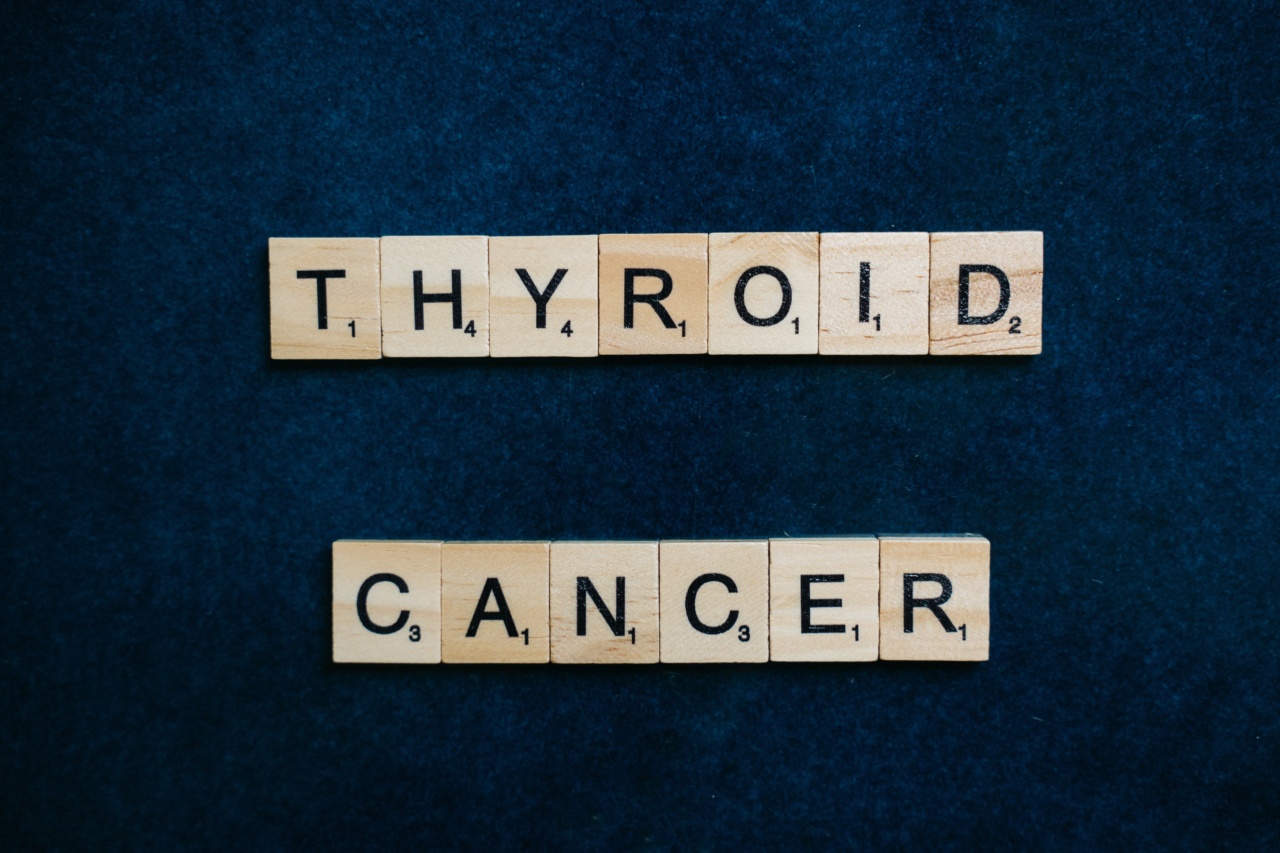Thyroid cancer is a type of cancer that affects the thyroid gland, a small gland located in the neck, just below the Adam’s apple. The thyroid gland produces hormones that regulate a person’s metabolism.
When cancer develops in the thyroid gland, it can interfere with the normal thyroid function and lead to several health problems.
The symptoms of thyroid cancer are not always noticeable, which is why it is important to be aware of the risk factors, the signs, and the screening tests available.
Types of Thyroid Cancer
There are four different types of thyroid cancer:.
Papillary Thyroid Cancer
Papillary thyroid cancer is the most common type of thyroid cancer. It develops in the follicular cells, which produce and store thyroid hormones. This type of thyroid cancer is usually slow-growing, and it can often be treated successfully.
Follicular Thyroid Cancer
Follicular thyroid cancer also develops in the follicular cells. This type of thyroid cancer tends to be more aggressive than papillary thyroid cancer, and it is more likely to spread to other parts of the body.
Medullary Thyroid Cancer
Medullary thyroid cancer develops in the C cells, which produce the hormone calcitonin. This type of thyroid cancer may run in families, and it is often associated with an inherited genetic mutation.
Anaplastic Thyroid Cancer
Anaplastic thyroid cancer is the most rare and most aggressive type of thyroid cancer. It develops in the follicular cells and spreads quickly to other parts of the body.
Risk Factors for Thyroid Cancer
There are several risk factors associated with thyroid cancer, including:.
- Gender: Women are more likely than men to develop thyroid cancer
- Age: Thyroid cancer can occur at any age, but it is most common between the ages of 30 and 60
- Exposure to radiation: People who have been exposed to high levels of radiation, such as during cancer treatment or nuclear disasters, are at a higher risk of developing thyroid cancer
- Familial history: Thyroid cancer can run in families, so people with a family history of thyroid cancer are at a higher risk of developing the disease
- Existing thyroid conditions: People with existing thyroid conditions, such as Hashimoto’s thyroiditis, are at a higher risk of developing thyroid cancer
Symptoms of Thyroid Cancer
Thyroid cancer may not cause any noticeable symptoms, especially in the early stages. However, some possible symptoms of thyroid cancer include:.
- A lump or nodule in the neck
- Swollen lymph nodes in the neck
- Hoarseness or difficulty speaking
- Difficulty swallowing
- Pain in the neck or throat
- Changes in the voice
- Difficulty breathing
- Coughing up blood
Diagnosing Thyroid Cancer
If you experience any of the symptoms of thyroid cancer, it is important to see a doctor for a diagnosis. Your doctor may perform several tests to determine if you have thyroid cancer, including:.
- A physical exam of the neck
- A blood test to check hormone levels
- An ultrasound of the thyroid gland
- A biopsy to test for cancer cells
Treatment for Thyroid Cancer
The treatment for thyroid cancer depends on the type and stage of the cancer. Some common treatments for thyroid cancer include:.
Surgery
The goal of surgery is to remove all or part of the thyroid gland. In some cases, the surgeon may also remove nearby lymph nodes. Surgery is often the first line of treatment for thyroid cancer.
Radiation Therapy
High-energy radiation is used to kill cancer cells and shrink tumors. Radiation therapy may be used after surgery to help eliminate any remaining cancer cells.
Chemotherapy
Chemotherapy involves using drugs to kill cancer cells. This type of treatment may be used for anaplastic thyroid cancer, which is often resistant to other forms of treatment.
Hormone Therapy
Thyroid hormone replacement therapy may be used after surgery to replace the hormones that the thyroid gland would normally produce. This type of therapy helps to regulate the body’s metabolism and prevent hypothyroidism.
Preventing Thyroid Cancer
There are no surefire ways to prevent thyroid cancer, but there are things you can do to reduce your risk, including:.
- Avoiding exposure to radiation
- Getting regular check-ups
- Knowing your family history of thyroid cancer
- Eating a healthy diet rich in fruits and vegetables
Conclusion
Thyroid cancer is a serious health condition that can have a big impact on your quality of life. The key to managing this type of cancer is to be aware of the risk factors, the symptoms, and the screening tests available.
If you experience any of the symptoms of thyroid cancer, it is important to see a doctor for a diagnosis.





























